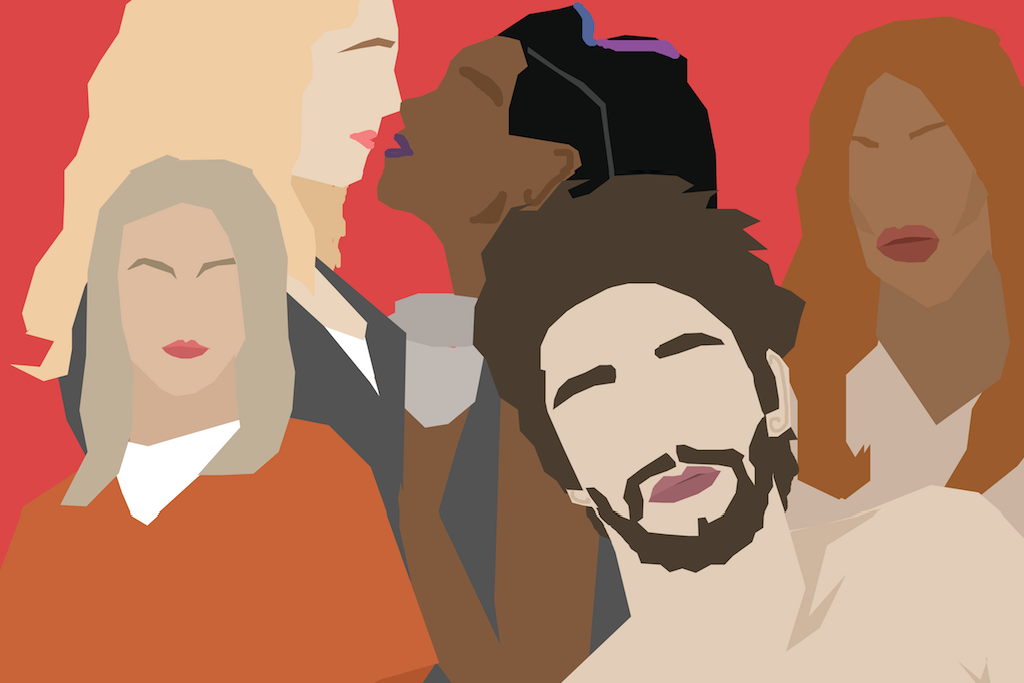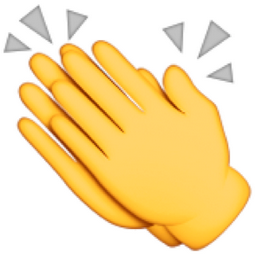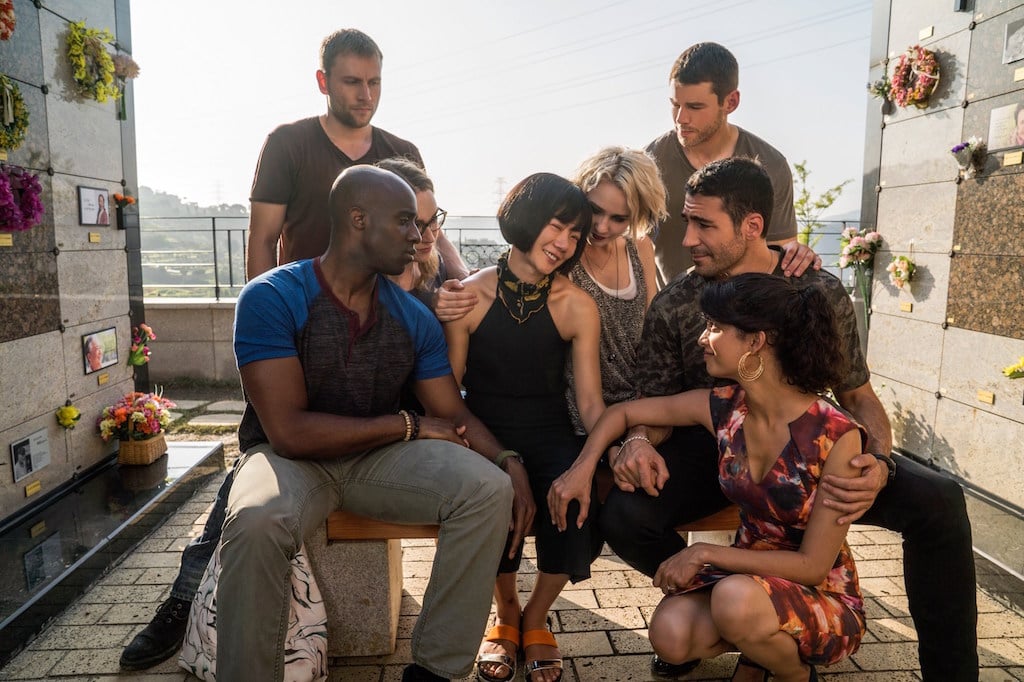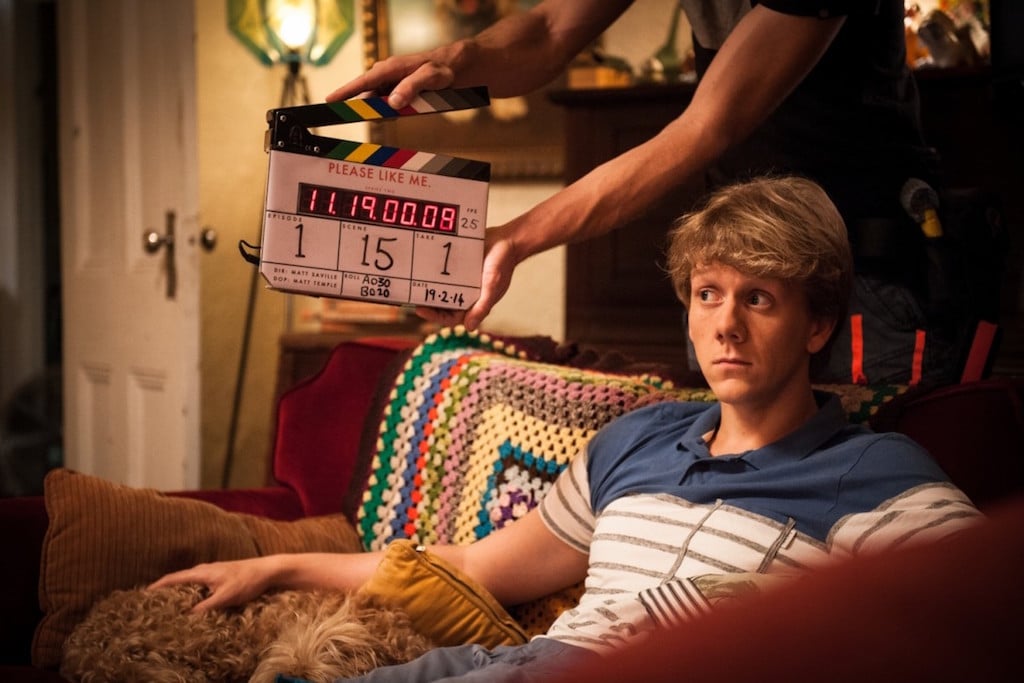8 Great (And Underrated) Queer Shows You Can Stream On Netflix Right Now
The best queer shows you can binge-stream this week!

There are loads of conversations going on about queer content on Netflix right now. The Bababook has been given a bizarre acceleration into international queerdom following a Netflix categorisation error (the Australian horror film was originally filed under ‘LGBT’); Netflix Original Sense8 has controversially been axed; and one of its flagship series, Orange Is The New Black is waning in popularity.
So we thought we’d take a closer look at a handful of the best queer shows you can binge this week; along with a few surprising picks, which offer up some great lesser-known queer characters. Enjoy:
Sense8
Despite being called a “queer masterpiece” by some, Netflix Original Sense8 is now facing the chop after only two seasons due to suspected issues with the show’s audience-to-budget ratio. But that doesn’t mean you shouldn’t take the time to get invested in this highly complex, slow-burning thriller!
Co-created by the Wachowski sisters — both of whom are transgender — the series is a remarkable lesson in empathy, following eight strangers from different socioeconomic backgrounds around the world (known as “sensates”) who telepathically pick up each other’s feelings and teleport into their respective lives. While the plot can admittedly feel pretty dense a times, the show offers up some of the most fleshed-out LGBTIQ+ characters on television today, including Nomi Marks, a trans protagonist played by actual trans woman Jamie Clayton, who is in a relationship with cis woman Amanita.
There’s also super-cute gay couple Lito and Hernando and a pretty epic polysexual orgy scene between five of the show’s main characters. This defining moment in the first series (aptly dubbed “Episode Sex”) was later addressed in a tweet by actor Brian J. Smith, who said that co-creator/director/writer Lana Wachowski views all of the show’s characters as pansexual. Hell yeah.
The L Word
The untimely axing of Sense8 could almost be forgiven if this decade-old classic was brought back to life. I don’t think I know of an openly queer woman who wasn’t impacted on some level by the LA lesbians of The L Word. And, considering that LGBTIQ+ film/television representation has been a tad cis-boy-heavy of late, now could be the perfect time to reintroduce the L Word women to a whole new audience.
In fact, recent talks of a reboot have whipped dedicated fans into a frenzy, with executive producer Ilene Chaiken mysteriously tweeting a number of the original L Word cast members: “So excited! Can’t wait…!” This was followed by a cryptic reply from star Kate Moennig herself, saying: “Can’t wait to be with my gals again!!”
Can't wait to be with my gals again!!
— kate moennig (@katemoennig) May 20, 2017
Introducing young viewers to the notion of “Lesbian Bed Death” and the importance of “nipple confidence”, The L Word was considered somewhat revolutionary for its time. And, whether or not the 2004 cult classic is reimagined for new audiences, it’s certainly worth revisiting the six original seasons currently streaming on Netflix — if only to reacquaint yourselves with the first-ever television show to focus on the multidimensional lives of queer-identifying women.
London Spy
The ever-so-adorkable Ben Whishaw (best known for playing Q in the Daniel Craig James Bond films, and for having an Australian husband who isn’t me) leads in this British crime thriller, which my gay uncle pitched to me as “edge of your seat stuff — and that Wishaw is just *deep inhale*…”
To be honest, it’s not really edge of your seat television. However, what it does offer is an openly gay, sensitive and multi-faceted leading man, Danny (played by Whishaw), whose hacker boyfriend, Alex, goes mysteriously missing. As far as queer content goes, London Spy is perhaps most valuable because Danny’s sexuality is treated as just one, non-defining element to his character — not the crux of it.
Orange Is The New Black
Whether or not you choose to weigh-in on the numerous critiques of the show — troubling claims of bisexuality erasure, or Ashleigh Shackleford’s eye-opening article ‘OITNB Is Trauma Porn Written For White People’ — Orange Is The New Black has been rightly lauded by fans and critics around the world for carving out an intriguing storytelling landscape for a powerful ensemble of queer female characters from diverse cultural backgrounds.
The show, which has recently dropped its fifth season on Netflix, has been a flawed but boldly progressive model of queer television, expanding the LGBTIQA+ experience well beyond mere tokenism and exploring what it means to be marginalised within an already marginalised community.
The series also features Aussie legend Yael Stone, who will be appearing at the upcoming Video Junkee 2017!
Schitt’s Creek
Okay, give me a moment here. Schitt’s Creek is one of the greatest new comedies streaming on Netflix for a couple of reasons. First, it gives us the long-awaited reunion of Eugene Levy and Catherine O’Hara, aka Cookie and Gerry Fleck from Christopher Guest’s hilarious mockumentary Best In Show.
However, it’s the show’s remarkably nonchalant handling of lead character David’s (Daniel Levy) pansexuality which is most impressive — particularly given the notorious underrepresentation of both pansexuality and bisexuality in the mainstream media. After sleeping with one of his best girlfriends, Stevie, David discusses his sexuality in terms we can all understand: wine.
Stevie: So, just to be clear… I’m a red wine drinker.
David: That’s fine.
Stevie: Okay, cool. I only drink red wine. And up until last night, I was under the impression that you, too, only drank red wine. But I guess I was wrong?
David: I see where you’re going with this. I do drink red wine. But I also drink white wine. And I’ve been known to sample the occasional rose. And a couple summers back I tried a merlot that used to be a chardonnay, which got a bit complicated.
Stevie: Oh, so you’re just really open to all wines.
David: I like the wine and not the label. Does that make sense?
Stevie: Yes, it does.

Miss Fisher’s Murder Mysteries
Refusing to conform to the gross patriarchy of 1920s Australia, Miss Fisher’s Murder Mysteries follows the unflappable sleuth Phryne Fisher as she casually goes about her day-to-day business of solving murders (and bedding hunks) in Melbourne. Fisher’s lifelong friend and trusty sidekick, Dr. Elizabeth Macmillan, is not only a kick-ass lesbian, but positively rocks a three-piece suit and makes this Aussie production a must-watch for all crime-lovers.
While thematically the show is only mildly queer, Miss Fisher really knocks the ball out of the park by shining a light on the strength of female and LGBTIQ+ characters in Australian stories. The series, which stars Essie Davis of The Babadook, has been embraced internationally, with growing audiences in the US and UK largely thanks to the exposure Netflix has provided. There are even rumours of an awesome Indiana Jones-style feature film trilogy going into production in the UK later this year.
So, um, get onto it. STAT!
Skins
Before it was unapologetically butchered by MTV in the US, Skins was the popular (and occasionally depressing) British series that reflected all aspects of teenage life in relatable and new ways.
For many twentysomething LGBTIQ+ people, myself included, the show provided some of the first contact with interesting, fleshed-out queer characters and storylines, with a team of young writers unafraid of exploring the grey areas between strictly platonic and sexual relationships.
From the gorgeous Maxxie hooking up with his homophobic bully to heterosexual Tony wanting to “try something new”, and the gorgeous relationship between Emily and Naomi, Skins was something of a trailblazer when it came to diversity in teen characters.
Please Like Me
Australian comedian Josh Thomas’ critically acclaimed series Please Like Me gets right to the queasy, uncomfortable and often hilarious core of what it means to be a queer person living, dating and sleeping around in Australia today.
Navigating complex themes of monogamy, hook-up apps and mental health, the show’s writers were unafraid of tackling the lived experiences of its brilliant ensemble, including the never-not-funny Aussie comedian Hannah Gadsby, who has a long history of using her public platform to address issues around depression.
What makes Please Like Me such a rare gem of observational comedy gold is the somewhat alarming sense of connectedness that comes with seeing your own life, fraught with challenges and vulnerability, being reimagined on-screen. Y’know, the idea that perhaps we’re not alone in our curiosity of polyamory, or wanting to bang a hottie to Sixpence None The Richer’s ‘Kiss Me’.
–
Feature image: Samuel Leighton-Dore.
–
Samuel Leighton-Dore is a storyteller via words and pictures and video. He’s the former editor of SameSame and Heaps Gay and tweets @SamLeightonDore.
–
Love film and TV? We’re holding our inaugural Video Junkee festival in July, a new annual event for lovers and creators of online video. Video Junkee is on July 28 & 29 at Carriageworks in Sydney, featuring keynotes, masterclasses, screenings, interviews and more. Tickets are on sale now.

